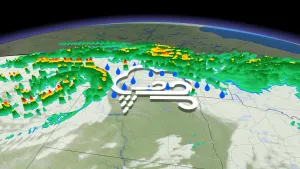
Cold weather makes people angrier than hot -- at least online
Hotter weather did see a relatively lower number of angry tweets, the researchers found, but an increase in violent behaviour away from the online realm.
You don’t need a spate of scientific papers to tell you the temperature outside affects your mood, and it certainly wouldn’t surprise you to find -- as several studies have -- that really hot days make you angrier than normal.
But when it comes to your social media self, it turns out that mood trigger is flipped: scientists at Macquarie University and the University of Sydney in Australia have announced that, online, it’s actually cold weather that’s more likely to get your temper boiling.
The scientists based their research on an analysis of 74.2 million tweets on Twitter from 2015 to 2017 in the Australian state of New South Wales. They found a 10-day average of 3,354 angry tweets per day during the coldest days, compared to an average 2,482 per day over the 10 hottest days.
Aside from the cold weather insights, they found that, outside of social media, the relationship between weather and Twitter users on hotter days had an ominous inverse.
“As daily maximum temperatures rose, assault counts increased while angry tweet counts decreased,” the researchers wrote in the journal Environment and Behavior. “Angry tweet counts were inversely associated with assaults, with an increase in tweets signaling decreasing assaults.”

The study found angry tweets were more numerous during cold weather, but hot weather was associated with more violent incidents away from the online realm.
When considering the study, it’s important to note that it’s in the Australian context, with Australian climate norms. For instance, the researchers found more angry tweets when the temperature was below 15℃ -- a few degrees colder than Sydney’s average daytime highs in the winter months of June and July. By contrast, 15℃ during January or February in Canada may very well be met with rejoicing rather than anger -- though temperatures 20 or more degrees below zero may very well see the Australian results replicated on Canadians’ Twitter feeds.
The weather’s effects on mood are well documented in some respects, with moods slipping as winter nears and the days get shorter and colder. Lack of sunlight, worst in the winter months, is also the key trigger for seasonal affective disorder (SAD).
As for warm weather effects, there are also documented cases of crime or violent behaviour rising during during stretches of warmer weather, though the Australian study’s researchers note warm weather on its own isn’t usually the trigger.
“Research suggests aggressive crimes increase because warmer weather encourages behaviour that fosters assaults. This includes more time outdoors, increased socialising and drinking alcohol,” the researchers write in an article published by The Conversation. “Those same factors – time outdoors and more socialising – may reduce the opportunity or motivation to tweet. And the effects of alcohol (such as reduced mental clarity and physical precision) make composing a tweet harder, and therefore less likely.”










